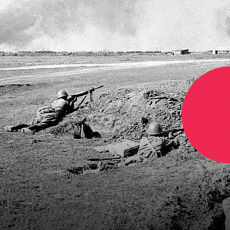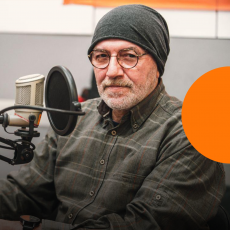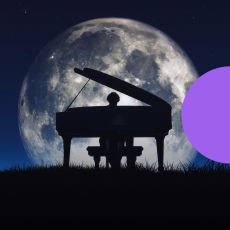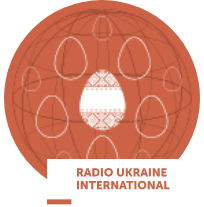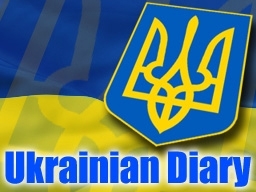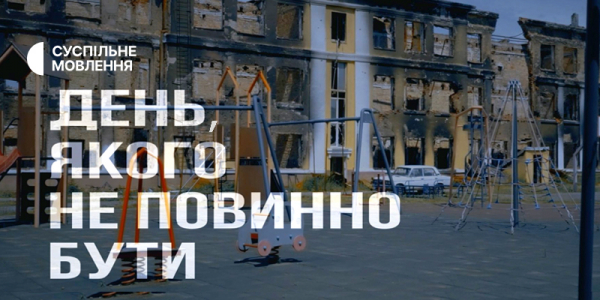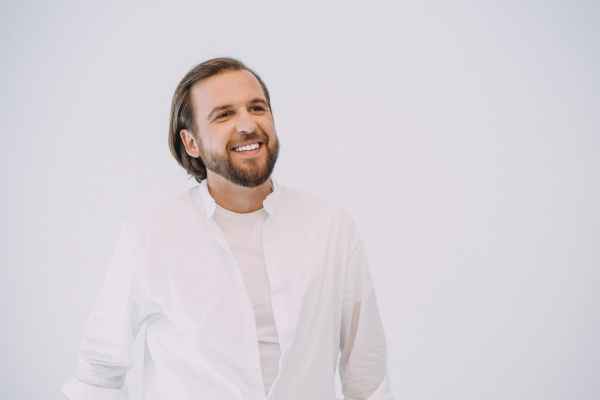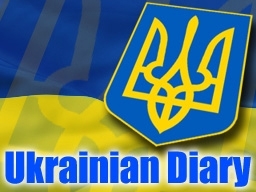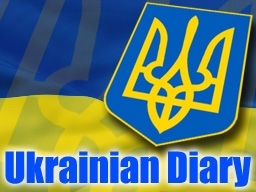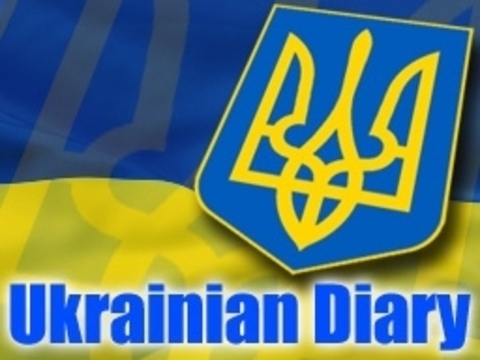Petro Poroshenko has held talks with the German Chancellor Angela Merkel
"The truce in the east of Ukraine is blatantly violated by Russian-controlled militants, despite the agreements reached by the ‚Normandy four‘ leaders", said Ukrainian President Petro Poroshenko at a joint press conference with German Chancellor Angela Merkel in Berlin on April 10, following bilateral meetings. The two leaders discussed the situation in the East of Ukraine, the presence of UN peacekeepers’ in the Donetsk and Luhansk regions and the support of reform and Ukrainian-German projects. Petro Poroshenko once again stressed that in the east of Ukraine, "there is no internal dispute over power, no frozen conflict - there is Russia's armed aggression against Ukraine." The Head of State thanked German Chancellor Angela Merkel for continuous support. "I am very grateful that the issue of Ukraine’s security is an integral part of the coalition agreement, as well as the issue of deploying peacekeepers in the Donbas. This is a strong signal of Germany's commitment to assist Ukraine in establishing peace, said President Poroshenko.
The Ukrainian president also talked on the Nord Stream 2 project — a controversial new pipeline that would allow Russia to deliver gas to Germany via the Baltic Sea, rather than transiting through Ukraine. Ukraine is currently the largest energy transit hub for Russian gas flowing into the European Union, although the levels of gas arriving through the central European country have decreased in recent years. Kyiv fears that a second pipeline would risk of Russia shutting off gas supplies to Ukraine altogether, which would enable the Kremlin to forge an "economic and energy blockage" against this country. The President noted that German politicians and German enterprises should carefully review the issue of Nord Stream 2, as it is a purely political project sponsored by Russia. In her turn, German Chancellor Angela Merkel said the Nord Stream 2 gas pipeline could not go ahead without clarity on Ukraine's role as a gas transit route, appearing to harden her stance towards the project. "I made it very clear that a Nord Stream 2 project is not possible without clarity on the future transit role of Ukraine," she told the press a joint news conference in Berlin with Ukrainian President Petro Poroshenko. "So you can see that it is not just an economic issue, but there are also political considerations," she added.
Poroshenko also said that Ukraine's National Security and Defense Council will consider unleashing additional sanctions against Russian oligarchs. According to him, the sanctions will be pressed against billionaire Oleg Deripaska.
Donbas war zone: weekly roundup
Over the past week the situation has been disturbing in the war zone in Eastern Ukraine. The operation headquarters press center numerously reported on violations of the ceasefire regime from the side of Russia-backed militants. The events had caused multiple casualties among the military personnel, as well as civilians, whereas the use of heavy weapons banned by the Minsk agreement from the enemy’s has progressed. The situation has escalated by the middle of the week, as the number of enemy strikes recorded on Wednesday had almost doubled compared to the previous day. 5 Ukrainian soldiers have sustained injuries on that day. Be the end of the week, the escalation continued with even a larger number of truce violations recorded from the enemy’s side. As a result, 1 Ukrainian soldier was killed.
Among civilian casualties recorded this week, a family of four people have lost their lives in a car explosion on a booby trap mine in Luhansk region. The car was detected at the engagement line after a search operation. Moreover, residential areas near the industrial town of Avdiivka in Donetsk region have suffered from an enemy shelling that has damaged private households of locals Wednesday night. Luckily, the lives of the local residents were saved, as they managed to take refuge and stayed in the shelter till morning, according to a report by the Head of Donetsk Region Civil-Military Administration Pavlo Zhebrivsky.
Alexander Hug, Principal Deputy Chief Monitor of the OSCE Special Monitoring Mission to Ukraine, pointed out in his report on Friday that proscribed weapons were spotted hidden near households in non-government areas. He emphasized on the predominance of military logic over a civilian one that perpetrates the violence, presenting figures of 39 civilians killed or injured in the conflict zone this year, and 480 at least last year. "More than a dozen impact sites, all residential homes, in which children were woken from their sleep with the terrifying sound of artillery rounds crashing into their homes and neighborhoods. There are many injuries. The events that might demonstrate a reckless disregard for the civilian population. Given that only 2 days previously people had celebrated Easter, they had dared to hope, having seen the decrease in the level of violence," Alexander Hug at his Friday briefing, reminding that those numbers are not exact and the real quantity of victims is even more significant, urging the sides to protect the civilian population.
Naftogaz of Ukraine has launched a debt enforcement against Russia’s Gazprom
The Ukrainian national oil and gas company Naftogaz has launched a debt enforcement procedure in Europe against Russia’s energy giant Gazprom over the $2.6 billion that the Russian company has failed to pay to Ukraine in defiance of the awards handed down by the Stockholm Arbitration. After losing the gas dispute with the Ukrainian company in February 2018, Gazprom had officially refused to comply with the arbitration award in late March. The press service of Naftogaz informed about preparations for the enforcement procedure, and about a new claim in preparation concerning the damage incurred by non-fulfillment of arbitration awards by Gazprom.
Volodymyr Saprykin, PhD in Technical Sciences and independent expert in energy issues, told Ukrainian Radio that Naftogaz is still to work out a strategy to make the reimbursement possible. Volodymyr Saprykin comments on the probability of the seizure of assets of the Russian energy giant in Europe: "First Naftogaz is to search for property in possession of Gazprom in Europe. Only the court can arrest those assets. It is important to chose a coutry that keeps within the law in reality. After the new sanctions against Russia the assets of Gazprom will drop spectacularly. Thus, we need to work out a plan and chose a country where a substantial number of them is placed." The recovery could take up to six months, according to Naftogaz officials, while the company hopes that Russia’s Gazprom would execute the arbitration tribunal's award in an honest manner.
Kyiv Security Forum headlines
The 11th Kyiv Security Forum has taken place this week. This is an annual international event dedicated to the topic of the European security. The forum is attended by leading politicians, diplomats, civic activists and experts from 35 countries. Among them are President of Ukraine Petro Poroshenko, Prime Ministers of Lithuania, Moldova, Ukraine, NATO Deputy Secretary General Rose Gottemoeller, as well as American, European and Ukrainian government officials and parliamentarians. Among the main topics of the forum is "The position of the international community regarding the aggression against Ukraine: Crimea, Donbas and human rights", as well as "NATO-Ukraine: Partnership Actions for Peace".
During his speech at the 11th Kyiv Security Forum, Petro Poroshenko asked the Cabinet to stop Ukraine's participation in the statutory bodies of the Commonwealth of Independent States. "Given that Ukraine has never been and is not now a member of the CIS, and the refusal of this structure, the CIS, to condemn the Russian aggression, I would ask that we, together with the Government, put forward proposals for the official termination of our participation in the standing bodies of the CIS. As well as the final closure of the Ukrainian representation with the relevant institutions in Minsk. At the same time, the entire contractual and legal framework concluded by Ukraine within the framework of the CIS should be checked for the compliance with the national interests of the state," - Petro Poroshenko said.
Ukraine, without signing the CIS Charter, is not de jure a state member of the Commonwealth, but has the status of a founding state and a State party to the CIS. The Commonwealth of Independent States is an association of post-Soviet countries. As part of this regional institution, Ukraine has given priority to the economic component of cooperation, first of all, to the creation of a full-fledged free trade area. Among other important areas, scientific, technical and innovative cooperation, interaction in the energy sector, including the field of nuclear energy, as well as cooperation in the agro-industrial complex.
Traditionally, Ukraine has not participated in military and political agreements aimed at creating a defense alliance within the CIS, and that’s why, is not a party to the Collective Security Treaty. Neither has Ukraine participated in the Commonwealth Collective Forces to support peace outside the UN or the OSCE.
Also, during the 11th Kyiv Security Forum, the issue of Ukraine's accession to NATO was considered. Permanent Representative of the United States to the North Atlantic Treaty Organization Kay Bailey Hutchison said that NATO is interested in Ukraine's membership in the alliance. "We want Ukraine to become a member of the alliance, I can assure you," said Hutchison. In the opinion of the ambassador, the fact that Ukraine is already fulfilling its annual national plans is a good way to become a member. At the same time, she noted that increased cooperation between Ukraine and NATO could lead to a negative reaction of Russia. Hutchison added that Russia is usually resorting to hybrid and cyberwar methods, as well as the destabilization of other states, trying to change their position on joining the alliance.
New Wave collection of Ukrainian short films premiere
The Oleksandr Dovzhenko National Center has released the annual collection of new Ukrainian short films titled the Ukrainian New Wave that has premiered in Kyiv on April 11th. Every year the project presents the best debut pieces by young Ukrainian directors to the public, those that were selected and approved by national and international film festivals.
PR-manager of Dovzhenko-Center Olha Buriak told Ukrainian Radio about this year’s focus topic and the collection itself: "This year the film anthology is focused on the theme of Runaway – it includes documentary and animation pieces, feature films – this topic speaks about the escape from oneself and to oneself from other people, about the runaway from the war, from the established cinematographic language, and the search for one’s own voice and language and means of expression." According to Dovzhenko Center press service, the new collection by young and brave Ukrainian directors is destined to speak about the situation when reality happens to be too close and all its details and inflections can be examined, when one can escape into imaginary worlds, emigrate, go insane or outrageous, refuge oneself in silence or invisibility. "The collection of 8 films includes various genres, namely drama and black comedy (that is so uncharacteristic for Ukrainian cinema). It also features a documentary by Maria Stoianova titled MA, the award-winning film “Graduation-97” by Pavlo Vostrikov, and 2 animation films Eluvium and Fingerman and others," said Dovzhenko-Center PR-manager Olha Buriak.
Austrian Film Week in Kyiv
The 7th Film Festival of "Austrian Film Week" has kicked off in Kyiv on Thursday. This year's festival program includes three full-length films, including the drama of the Ukrainian-Austrian production, premiered as part of the Rotterdam Film Festival Competition, known for innovative and experimental cinema, as well as a traditional short films collection. Ilya Diadyk, organizer of the film festival, program director of "Arthouse Traffic", comments: “The festival starts with the Austrian film "Mademoiselle Paradis", which received many awards from the National Film Academy of Austria, directed by Barbara Albert. This movie is about a blind girl who is a talented pianist. The film is based on a real story. Another interesting premiere is the movie "January-March" - Ukrainian-Austrian co-production, directed by Yuriy Rychynskyi. We will also show the entertaining comedy "Migrants" and a selection of short films, the winners of "Ars Electronica". The festival will also be held in Odesa, Kharkiv, Dnipro, and Lviv.”
The Ukrainian-Austrian drama "January-March," directed by Yuriy Rechynskyi, was filmed in Kryvyi Rih and Vienna. The film tells two parallel stories: the first one about a young couple, Anna who comes from Austria and Yuriy from Ukraine. They get into a car accident, the consequences of which become devastating for the lovers. The second story is about the mother of Anna - Martha, who is in Vienna suffering a personality disorder, caused by Alzheimer's disease. The Austrian Film Week will travel across Ukraine by May.
